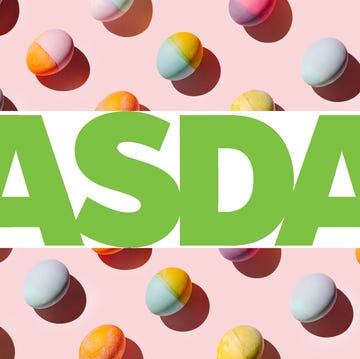After an election night full of drama, the new Labour government is expected to hit the ground running. The nature of British politics means that, unlike in the US which has a two-month handover period between a general election and the swearing in of a new President, everything happens in just a few hours, so the new occupant of Number 10 can make his mark straightaway.
In 1997, when Tony Blair's government won a landslide victory, its first few days in office was marked with a flurry of policy announcements, and Sir Keir Starmer could follow his example. Rather than deliver any huge shocks though, which could spook the financial markets, the new Government is expected to follow the plans set out in the Labour Party's manifesto on crucial matters such as tax and pensions. So what can we expect from this new Labour Government when it comes to our finances?
What happens now?
Once Sir Keir was officially asked by King Charles to lead the new Government, he wasted no time in appointing his new Cabinet, including Rachel Reeves as Chancellor, Wes Streeting for Health and Social Care and Yvette Cooper as Home Secretary. He also looked outside the world of politics with some widely-praised appointments, particularly naming key cutting chain Timpson's chief executive James Timpson as Prisons Minister.
What to read next
Parliament returns on Tuesday 9 July with new MPs getting sworn in. However, settling into a new job is never easy and with so many new MPs to be appointed, the allocation of offices will take time, plus organising their own support staff and coming to terms with an unfamiliar IT system. A typical first day in a new office!
A King’s Speech setting out the legislative agenda of the new Government is expected on 17 July, with a full Budget not expected for a few months. Rachel Reeves has said she wouldn’t hold a full Budget until the autumn, giving the Office of Budget Responsibility time to scrutinise the figures.
How did the stock markets react?
Experts had correctly anticipated that the stock markets had already factored in a Labour victory ahead of time, and in the event, the impact on the financial markets was minimal. The FTSE100 rose quite sharply on the Friday after election day before falling back in the afternoon, with the banking, house-building and renewable energy sectors performing particularly strongly.
Tax promises
Sarah Coles, head of personal finance, Hargreaves Lansdown, says: "Labour made expensive commitments during the campaign, keeping the State Pension triple lock, and ruling out rises in income tax, National Insurance or VAT. However, money will be tight, so there’s a chance of cuts in services or tax rises later. Capital gains tax could be in the frame."
There are some tax increases expected which were widely discussed during the election campaign, such as abolishing the VAT exemption on private school fees and abolishing non-dom status.
VAT on private school fees
For many parents one of the biggest dents in their personal finances under Labour will come from increases in private school fees.
Explains Laura Suter, director of personal finance at AJ Bell: "Labour’s plan to bring in VAT on school fees, as well as ending business rate relief for these schools, is expected to significantly increase the cost of private schooling. It’s expected that schools will absorb some of these cost increases, so there’s no clear rule about how much fees will increase by.
"Some schools are offering the ability to pay upfront for fees, in order to bypass the VAT-related increases. However, it’s expected anti-forestalling rules will be brought in to limit how effective this is. Based on the average day-school fee of £18,064 a year per pupil, a family with two children would see their annual costs rise by just over £7,000 a year if the full 20% cost increase was passed on, or £3,600 if the school absorbed half that increase and passed on a 10% rise in fees.
"While some parents will opt out of private school altogether in favour of the state system, others will absorb the price hike, make cuts to their budget elsewhere, or ask family for help with the higher fees."
There was no commitment from Labour to lift income tax thresholds, hiking taxes for millions. Since the thresholds were frozen in the 2021/2022 tax year, 4.4 million more people have had to pay tax, including an extra 2.1 million now paying basic rate tax and 1.9 million moving into the higher 40 per cent tax rate. This has a knock-on impact on savings, and investments. Savers lose chunks of their personal savings allowance as they cross frozen thresholds – and pay tax at a higher rate. They also pay higher rates on dividends and capital gains.
All this means more tax take for the Exchequer, "with the nation expected to pay a whopping £63.2 billion extra in tax on earnings this year than in 2021/22," says Laura Suter. "This highlights the challenge facing Labour: namely that ending the freeze costs a lot of money which they either don’t have or want to spend elsewhere."
Advises Sarah Coles: "Fortunately, nothing will happen overnight. The Budget isn’t expected until the autumn, and any changes are likely to be gradual, so it’s not too late to make the best possible use of any tax-efficient savings and investments, including ISAs and pension contributions. Don’t rush into any decisions, or be driven by tax fears, but if you were planning contributions this tax year, it’s worth considering making them before any changes kick in."
More support with your finances
Labour pledged help for parents including breakfast clubs in primary schools, the right to parental leave from day one of starting work, free childcare to all children over nine months and protections against discrimination against pregnant women. Meanwhile, for those wrestling with everyday costs, there were promises of everything from improving the minimum wage to cutting utility standing charges.
Minimum wage
During the election campaign, Labour pledged to extend the minimum wage to younger people, giving an income boost to the youngest and lowest paid workers in the UK.
"The Conservatives have brought in increases to the minimum wage in the past couple of years, taking it from £9.50 an hour two years ago to £11.44 an hour today," says Laura Suter. "It has also extended the full minimum wage to 21-year-olds, where previously the cutoff was 23.
"But Labour wants to go one step further and give those age 18 and above the full wage. Based on current rates, if 18-year-olds were eligible for the full National Minimum Wage it would represent a £2.84 an hour increase to their salary. For a full-time worker that would mean a more than £5,000 a year increase to their salary, based on a 35-hour working week."
What about pensions?
Helen Morrissey, head of retirement analysis, Hargreaves Lansdown, said before the election that if Labour won, "the triple lock would be here to stay, giving retirees certainty on how their State Pension will be uprated in the next Parliament. However, with the cost continuing to rise, Labour will walk a tricky tightrope between keeping the triple lock and not overburdening the working population.
She adds: "Labour’s promised pension review needs to transform workplace pensions to better serve savers, from consolidation to thinking about small pots and how people can build a lifetime pension, rather than switch provider with every new job. This has the potential to help people engage with their pension, address the issue of lost pension pots and drive competition in the industry.
"The other key part of the review will be pensions taxes, including pensions tax relief. This is ripe for tinkering whenever a government needs money, which has created a complex, messy system that can make it hard to plan long term. Labour’s decision to step back from plans to reintroduce the lifetime allowance has been welcomed and this needs to be built on to deliver a system that incentivises people to save with confidence that they won’t get tripped up by complex rules. In the meantime, people should continue to make full use of the allowances available to them to build up their SIPPs."














